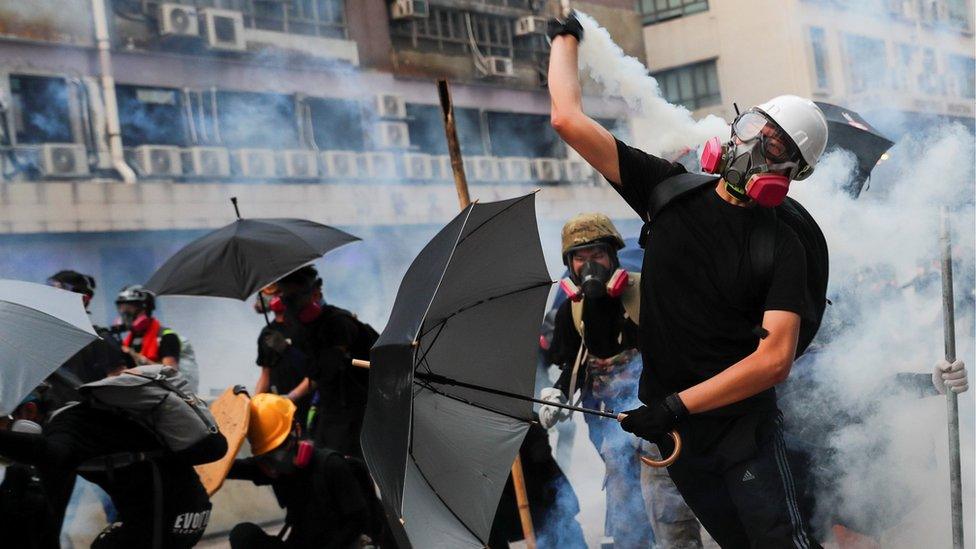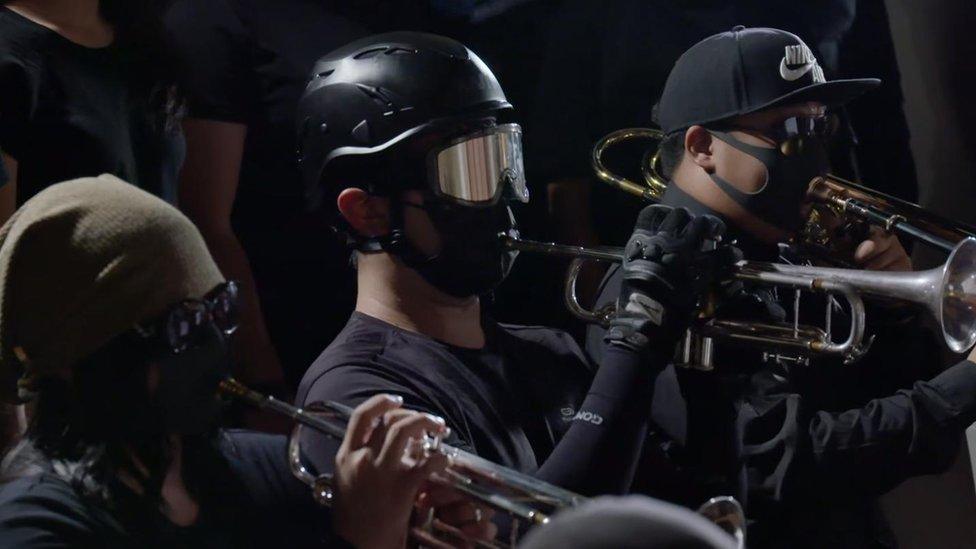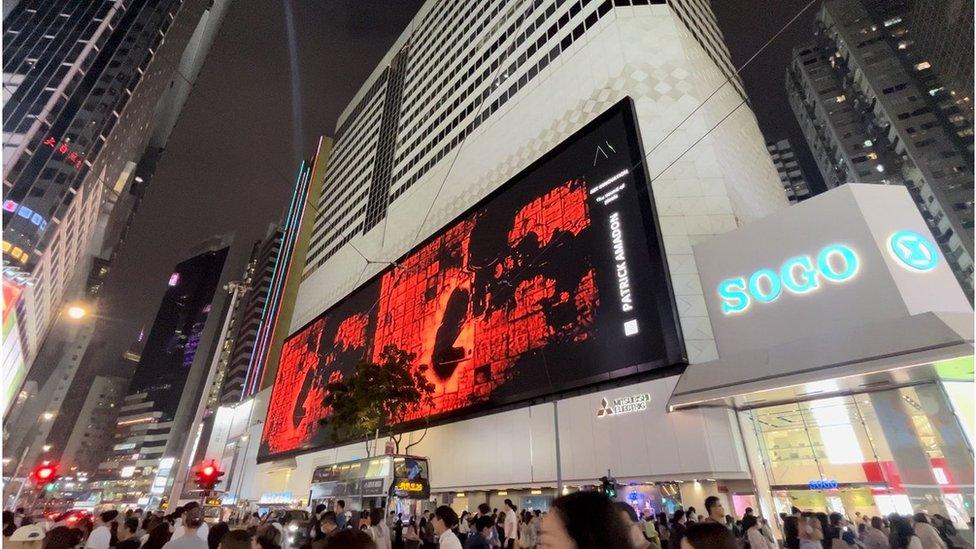Glory to Hong Kong: Protest anthem removed from iTunes, Spotify
- Published

Glory to Hong Kong has vanished from streaming as authorities prepare to have it banned.
The unofficial anthem of Hong Kong's pro-democracy protests in 2019 has been removed from streaming platforms ahead of a court order that may ban the song.
Glory to Hong Kong had topped the city's iTunes chart last week after the government announced its intention to blacklist the song on security grounds.
On Wednesday recordings disappeared from Spotify and iTunes.
The tune has been targeted by authorities after being played in place of the Chinese anthem at some events.
Critics say the anticipated ban is another sign of Beijing's crackdown and efforts to stamp out dissent in Hong Kong against the central Chinese government.
If Glory to Hong Kong is banned, anyone involved in the broadcast, performance, sale or distribution of the song, including on the internet, could be charged under the city's National Security Law.
Hong Kong, a former British colony, is a Special Administrative Region of China and its residents are supposed to enjoy wider freedoms compared to the Chinese mainland. However, advocates say democratic freedoms have been eroded in recent years.
On Thursday, in response to reports, Spotify clarified the song had been removed by the distributor - the middleman company which handled the song's licensing to music platforms.
The composer of the song had earlier told the BBC he had not asked for the song to be taken down.
The protest tune was written in Cantonese during the 2019 demonstrations. It includes the lyrics: "Revolution of our times. May people reign, proud and free, now and evermore. Glory be to thee Hong Kong".
Many locals in Hong Kong had rushed to download the song in recent days as a court ban loomed.
A court was due to issue a ruling on Monday, but this was postponed after the judge asked the Hong Kong government to be more specific in the scope of its request.
For months, authorities have tried to erase or mask all traces of the tune online. Glory to Hong Kong has been banned in schools since 2020.
The Hong Kong government has also petitioned Google unsuccessfully to have the song removed or ranked lower in search results.
Web searches for Hong Kong's national anthem continue to regularly display Glory to Hong Kong instead of China's official anthem, March of the Volunteers.
On Tuesday, Hong Kong's leader John Lee described the song as "not compatible with the national interest".
"Hong Kong Special Administrative Region has a duty and obligation to safeguard national security, and we should do it proactively and also preventively," he said.
But rights groups say the song is not a threat to national security, external.
"National security may not be used as an excuse to deny people the right to express different political views," said the head of Amnesty International's China team, Sarah Brooks.
Last year, a harmonica player was arrested for playing the song outside the British consulate in Hong Kong to mourn the death of Queen Elizabeth II.
In response to the 2019 mass protests, China passed a sweeping national security law to restore stability back to the city. However, critics said it was designed to suppress dissent and reduce Hong Kong's autonomy.
- Published14 September 2019

- Published24 March 2023

- Published21 March 2023

- Published17 March 2023
